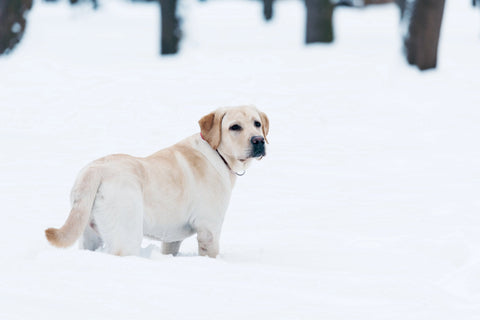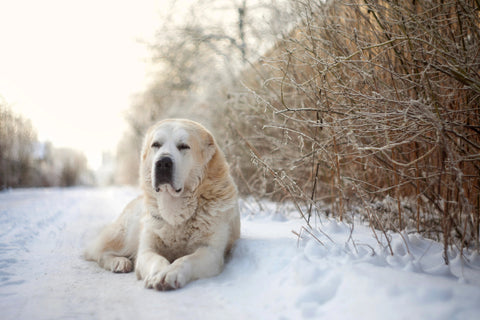Having a disabled dog at home can be challenging and hard work. But the fulfillment you will feel from taking care and loving your special fur-baby is rewarding! As responsible pet parents, it is our responsibility to understand how to help our disabled dog to still live a comfortable and high-quality life despite their conditions that make them even more special to us.
Here, we have listed some helpful wisdom that will help you take care of your pets with special needs.

Consult a specialist
Even if you're already aware that your dog has special needs, it's still always best to consult a specialist, who will offer innovative solutions and treatment plans. They're the best person to talk to in educating yourself on the condition of your pet and in guiding you on how to help your pet with special needs. They assess your pet's condition and help you provide your pet a bit of normalcy in their lives, which helps keep their tails wagging and their sloppy kisses comin'.
Gear for your disabled dog
Now that your disabled dog has been properly diagnosed, make sure to get the right dog gear for him that will properly support him and his special need. Whatever it may be, it's important that your dog is provided with the necessary support so he can continue to be comfortable and happy when he is spending time with his favorite person (you, of course).
For deaf dogs, you can consider buying a remote-controlled training collar, causing it to vibrate, when necessary. This is a great way to call your dog's attention and teach him how to respond, with less confusion and frustration.
For physically-disabled pets, carts and wheelchairs provide great support and mobility for dogs who have difficulty walking or can't walk at all. These are also best for senior dogs who have hip dysplasia or arthritis, weakened limbs or amputations. Make sure to find one that best suits his needs and of course helps him show off how handsome he is.
Prepare for the road less traveled
Surely, caring for and the lifestyle that comes with disabled dogs can be frustrating sometimes. No long walks or no play fights at the park like some of his friends get to do. But despite that, love, care and support are the most important things that your dog needs! You should prepare (and accept!) for everything that comes with it.
In reality, the only thing your fur-baby wants is to spend time with you, so as long as he can do that, and is comfortable doing so, he will be happy.
"Even if you're already aware that your dog has special needs, it's still always best to consult a specialist, who will offer innovative solutions and treatment plans."
Practice a routine
The best advice anyone with a disabled dog ever got? To establish a routine.
By keeping up with a routine, it's so much easier to be on the move to take good care of a pet with special needs. Your pet will feel and appreciate the structure you are providing him, and plus, it makes it easier on both of you when things become a daily routine.
Washable pee pads & washable dog diapers
Yes, they are a thing. Since it will be difficult and quite impossible for your dog to become potty-trained or to just simply go out of the house to take that 'break', pee pads and dog diapers are great in helping with this and solving these problems!
Since he cannot urinate on his own, your dog must manually express his bladder to avoid the risk of any infection.
It's even better to use washable products because they will get soiled from time to time and you wouldn't want to spend that much money everyday; not to mention filling up the landfill!
Now, whether your dog is approaching his senior years, facing health complications or was just beautifully born that way, caring for disabled dogs requires a great number of considerations, patience and of course, love! With quality care from you as a responsible pet parent, your dog can still and can actually live a healthy, happy life!









